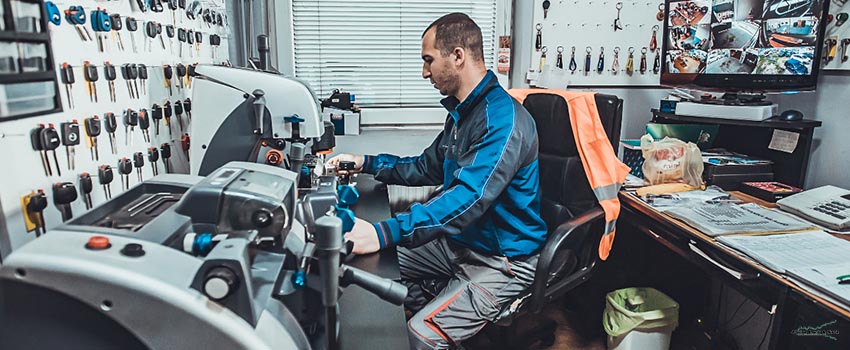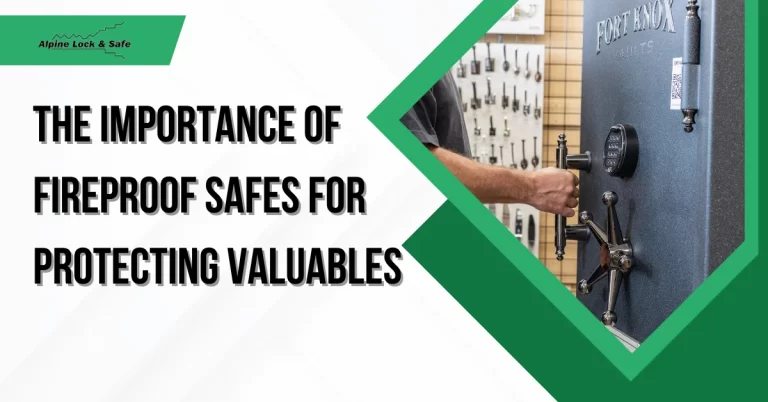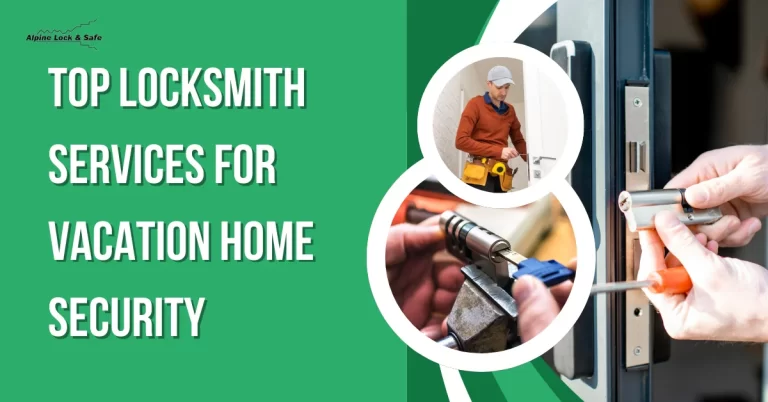If you are a night owl and don’t mind answering calls in the middle of the night from people who have locked themselves out of their homes or cars, then a career as a locksmith may be ideal for you. You will feel satisfied and valued as a certified locksmith if you enjoy assisting others.
One of the most significant challenges of being a locksmith is figuring out what qualifications you genuinely need and what those certifications entail. Deciding what qualifications are required can be pretty challenging because the requirements vary for each state and sometimes for each locality.
A locksmith license may make the difference between getting a job and not getting one in some states, while various qualifications are virtually irrelevant in other states.
What Does a Locksmith Do
Locksmiths will typically perform a wide range of duties, some of which are listed here:
- Repair and maintain all types of locking mechanisms.
- Install and fix locks using power tools.
- Unlock safes and other security devices if the code or key is unavailable.
- Assist customers when they’re locked out of their cars or houses.
- Make duplicate sets of keys and keep the necessary records.
- Rekey locks when individuals lose their keys or have their keys stolen.
- Provide emergency on-call services at non-standard hours.
List of States Requiring a Locksmith Certification
All locksmiths must be certified to be considered for the position. However, the training requirements differ from state to state. Check with professional locksmith organizations, beginning with the Associated Locksmiths of America (ALOA), for an authorized locksmith training course and to learn what specific courses are required in your state.
Some states or districts require locksmiths to be licensed to practice. Here’s a list of the states that require a locksmith certification:
- Alabama
- Connecticut
- California
- Illinois
- Louisiana
- Maryland
- Nevada
- Nebraska
- North Carolina
- New Jersey
- Oklahoma
- Oregon
- Texas
- Tennessee
- Virginia
Different Locksmith Certifications
Registered Locksmith
The Registered Locksmith certification (RL) started in 1985 and was the first certification for general locksmiths. To gain the Registered Locksmith certification, locksmiths must attend twelve eight-hour classes with the Associated Locksmiths Of America. Alternatively, locksmiths can gain the RL certification by attending the ALOA Basic Locksmithing course and passing the exam at the course end.
Certified Registered Locksmith
The CRL is the entry-level certification for locksmiths. A CRL qualification indicates that an individual has passed the two ALOA-offered specialist electives in addition to the ten necessary categories. Furthermore, a CRL is proficient in all aspects of general locksmithing.
Certified Professional Locksmith
The Certified Professional Locksmith (CPL) is the second tier of locksmith certification. This qualification indicates that an individual has completed an extra 12 ALOA-offered elective categories and received the CRL designation. Moreover, a CPL is well-versed in many different specialist fields and has extensive knowledge of general locksmithing.
Certified Master Locksmith
Certified Master Locksmith (CML) is the highest locksmith certification. A CML qualification indicates that the locksmith has completed the most challenging level of ALOA’s Proficiency Registration Program (PRP). Furthermore, a CML has shown competency in 90 % of the PRP’s current categories. A CML is well-versed in most aspects of locksmithing and electronic security.
Where Do You Get Certified
As previously stated, two associations currently provide certification programs and exams.
- Associated Locksmiths of America (ALOA)
- Safe and Vault Technician’s Association (SAVTVA)
How To Become A Certified Locksmith
Consider the following steps on how to get a locksmith certification:
1. Finish a training course
If you wish to become a certified locksmith after earning your high school diploma or equivalent, you should enroll in an online locksmith course. Usually, local community colleges and vocational institutions have these available. The training will typically involve a combination of practical instruction and evaluation, and it can be conducted over months or years.
2. Join an apprenticeship program
Another way of learning the locksmith trade and gaining a qualification is by becoming an apprentice. You can pursue an apprenticeship at a locksmith school. In the apprenticeship program, entry-level individuals work with seasoned professionals and get practical expertise in locksmithing.
An apprenticeship provides the necessary training and experience that helps applicants obtain a paid locksmith job. To guarantee you’re receiving the most thorough instruction possible if you decide to apprentice, make sure you find a mentor with a license or certification.
3. Obtain a license in the relevant districts and states.
To operate as a locksmith, you must complete an assessment testing your locksmithing abilities and obtain a license or certificate if your state mandates one. The ALOA conducts the certification examination, and those who pass are awarded the designation Registered Locksmith, Certified Automotive Locksmith, or Certified Master Safe Tech. You might also be required to submit to a thorough background investigation and provide the state with your fingerprints to obtain your license.
4. Work for a locksmith business to gain experience.
It makes sense to hunt for work with an established locksmith company before you start operating independently. By doing this, you will be able to gain all the knowledge necessary to run a locksmith business firm, including administrative duties. Since regulations differ from state to state, it might even be necessary for your state for you to apprentice under an experienced locksmith for many years.
Conclusion
Locksmithing is a varied and vital industry contributing to our society’s safe and seamless operation. It offers numerous advantages, including versatility and demand. The pay is competitive, and the working conditions are constantly changing, making it an exciting alternative to a desk job.
If you don’t have a criminal record and are within the age bracket designated by your state, you can start locksmith courses online for free immediately. Once you have gained the necessary qualifications, you can commence work as a locksmith, a rewarding profession that helps keep people and their possessions safe and secure.
Be A Certified Locksmith Today And Be A Helping Hand Like Alpine Lock And Safe
A career as a certified locksmith may be right for you if you have a fascination with locks, appreciate mechanics, enjoy a dynamic work atmosphere, and want to assist people with their security. Be a locksmith today, just like the experts from locksmith in Vail, CO, who are always a phone call away to lend a helping hand to keep your family and belongings secured from negative entities anytime, night or day.






